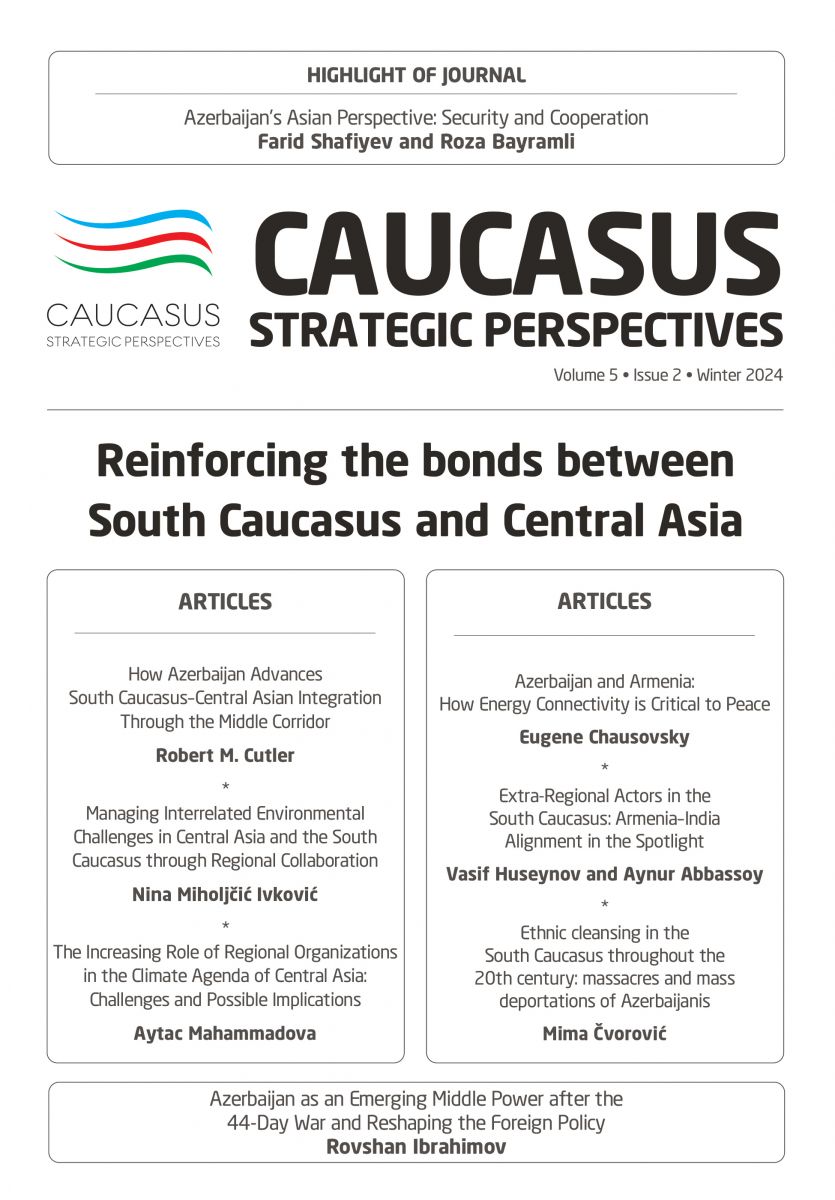The Increasing Role of Regional Organizations in the Climate Agenda of Central Asia: Challenges and Possible Implications
This article critically examines the structural and political challenges impeding the efficacy of Central Asian regional organizations in addressing climate change. It identifies the region’s acute vulnerabilities – accelerating glacial retreat, intensifying water scarcity, and rising temperatures – that endanger key sectors such as agriculture, energy, and public health, ultimately threatening regional stability. The analysis underscores the detrimental impact of divergent national agendas, fragmented policies, and limited institutional capacities. While over 150 bilateral agreements on water resources exist, their non-binding nature and lack of enforcement hinder meaningful progress. In addition, the region also faces issues such as inadequate regional coordination and the lack of a comprehensive legal framework for climate governance. The absence of unified data systems and insufficient investment in climate adaptation strategies further exacerbate the situation. The study recommends establishing a comprehensive, centralized climate data repository, a regionally financed climate fund, and binding environmental agreements with enforceable mechanisms to ensure compliance and coordination. Additionally, fostering public awareness and local involvement is deemed essential to bolstering support for environmental initiatives. Concluding that regional cohesion and sustained commitment are paramount, the article argues for substantial reforms in climate governance to enable Central Asia’s resilience and sustainable development.
Latest news
- 12/27/2024 Call for Submissions-Caucasus Strategic Perspectives, Volume 6, Issue 1, Summer 2025 668 views
Popular articles
- 07/18/2022 The Russia–Ukraine War: Perspective of Azerbaijan 4325 views
- 10/14/2020 The Non-Aligned Movement: In Pursuit of Validity and Relevance in the Contemporary Global Order 3307 views
- 10/14/2020 Vicious Circle of the South Caucasus: Intra-Regional Conflicts and Geopolitical Heterogeneity 3291 views
- 10/14/2020 Relevance of Non-Alignment for Azerbaijan’s Foreign and Security Policy 3020 views





